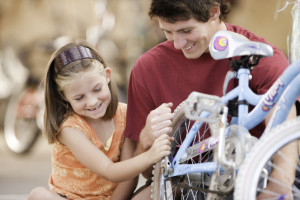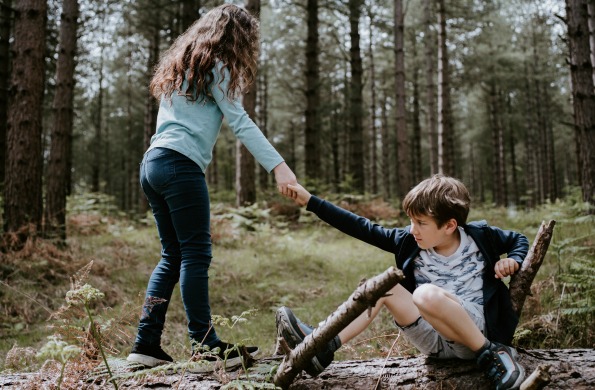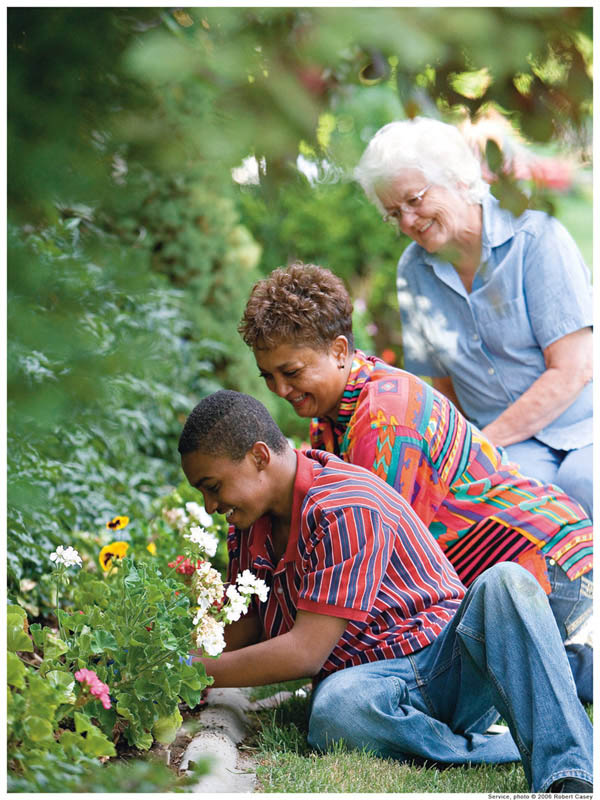Panic attacks and anxiety seem to be running rampant in our society—at least in my neck of the woods. More and more we are seeing young adults who don’t have the skills needed to cope in the real world. My heart goes out to them. As a mother, I want to give them all big hugs and “make it all better.” Yet, that’s not what we need to do. It would, obviously, be much better to teach them coping skills. They need to be taught resilience. Resilience isn’t something we are usually born with; it is a learned skill.
 How do we teach people to be resilient—especially our children? This is something I’ve been thinking about for some time.
How do we teach people to be resilient—especially our children? This is something I’ve been thinking about for some time.
I was a youth leader in Camp Fire Boys and Girls for many years. One time our Camp Fire Club was invited to participate with maybe eight or ten other clubs in presenting skits or little mini plays to each other on the stage of a junior high school. There were ten girls in my club, and they were all born leaders with Type A personalities. We had about three weeks to decide on a skit, learn it, and practice it. My kids absolutely could not agree on anything. Each time they practiced the skit, it was different. The plot moved and changed instantly if one girl decided she had a better way to do it. There was great maneuvering to be “the star.”
At some point it became apparent to me that these girls were going to get up on that stage and make a total mess of it. They were simply not able to work together for the common good. I talked to my mentor in the Camp Fire office, Marianne, and told her I was considering pulling my club out. Marianne calmly explained to me that it would be a huge mistake to pull the club out of the event. This very wise woman who had never raised children of her own (a plug for all you single sisters to get involved in helping others raise their children—you are desperately needed) explained to me that children need to fail. If we don’t allow children to fail, how do they learn to face failure in the adult world? Nobody succeeds at everything they do. You have to give children opportunities and then let them fail in order for them to learn life skills—including resilience.
Letting my club fail was very hard. I wanted them to succeed. When they stepped on that stage, I wanted to cry. As predicted, their skit was a total disaster. Nobody knew what they were doing, where they were standing, or the lines they were to speak. It was a mess. Afterwards, they were totally humiliated. So, we talked at great length about why they had failed. These girls, who were all intelligent, born leaders, learned some great lessons. They learned they needed to work together for the good of them all. They learned that good leaders sometimes step back and let someone else be “the star.” They learned that they needed each other in order to succeed. They learned that making fools of themselves on stage in a very public way was not the end of the world as we know it and that tomorrow is another day. They learned resilience—and it took failure for them to learn that huge life lesson.
There is a great article in the September 2019 issue of the Ensign about resilience by Elder Lynn G. Robbins of the Seventy. If you haven’t read it, I highly recommend it. He discusses how colleges and universities, the military, and even mission presidents are revealing the lack of resilience in young adults, and then gives us concrete ways to combat the issue. He sets out four principles of resilient children: (1) self-reliance, (2) opposition in all things, (3) the gift of the Holy Ghost, and (4) moral agency. Below are quotes from that article in each of the four categories.
“We could make every decision for our children, but it would be wiser to teach them the art of decision-making and thus help them become intellectually, spiritually, socially, and emotionally self-reliant.
To read more of Tudie’s articles, click here.
Learning to develop the Christlike virtues of faith, patience, diligence, and resilience, among many others, cannot happen without opposition or the “furnace of affliction” (Isaiah 48:10). Our Father in Heaven, therefore, allows us to face difficult challenges and do hard things. How can we ever become like our great Exemplar if we don’t face trials similar to those that made Him who He is? Likewise, how can we as parents help our own children progress if we don’t allow them and even encourage them to do hard things?
Teaching children how to face, work through, and conquer their trials helps them think for themselves, reason through problems, and recognize and understand the whisperings of the Holy Ghost. Only through their own experience in solving problems do they develop common sense and wisdom and grow in their ability to “study it out” and receive revelation.
The day will come when our children will leave home. Our only hope as parents is to teach them correct principles about the plan of salvation and help them recognize the whisperings of the Spirit to guide them in the wise use of their agency. Otherwise, they may lack the spiritual self-reliance and resilience to face future trials, with a chance that we could lose them” (“Resilience—Spiritual Armor for Today’s Youth,” Elder Lynn G. Robbins, Ensign (Sep. 2019)).
I stated in the beginning that panic attacks and anxiety are running rampant—at least in my little circle of the world. These are very real problems. I am not a psychologist, psychiatrist, or physician of any kind. As a matter of fact, I never went to college and have no degrees whatsoever. Having said that, I have a ton of life experience and have raised four children. There are lots of reasons for anxiety and panic attacks that don’t have to do with raising resilient children. However, as a lay observer of the humans in my circle, I’m seeing more and more young people who have no life skills, nor any resilience to life’s bumpy road. We must do a better job of teaching them these skills. They must be equipped with resilience if they are going to make it through the afflictions of life.
About Tudie Rose
Tudie Rose is a mother of four and grandmother of ten in Sacramento, California. You can find her on Twitter as @TudieRose. She blogs as Tudie Rose at http://potrackrose.wordpress.com. She has written articles for Familius. You will find a Tudie Rose essay in Lessons from My Parents, Michele Robbins, Familius 2013, at http://www.familius.com/lessons-from-my-parents.
Twitter •







